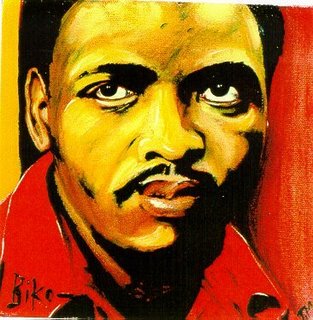Reflections - South Africa - 2014
George A. Hill
We live in a country of two worlds - maybe more. We occupy spaces in between spaces and our reality is superficial at most, esoteric at least. There is perhaps another way to describe our dichotomy but when you truly look at our country 20 years after the advent of democracy the differences simply are to glaring.
Intellectuals, politicians, social activists, scribes and social commentators have for decades now bemoaned and documented the ever widening rift between rich and poor. We see it every day on our streets. We witness it when we ‘go home’. Or on our way to our holiday destinations, driving through the North West or the Northern Cape when we see the despair in run down infrastructure and on the faces of people trying to survive living below the poverty line. Or in the silent cries of the impoverished farmworkers working the land but not owning the land. We hear it on the news, when we hear about children being left behind because school books were not delivered, of a child who died after falling into a pit latrine. We witness it first hand, when we murder protesting mineworkers and leave orphans and widows behind to fend for themselves. The list is endless. The hungry is plenty and the resources are being mismanaged.
Our social construct in 2014 is informed by our immediate interactions, power relations and the psychological and institutional legacy of apartheid (oops there we rang that bell again). And so we must. To have proper context we must understand the role the past plays in our present. The fact that for the majority of white South Africans, apartheid simply did not happen – the fact that they refuse to acknowledge that they were advantaged and are still reaping the rewards – is a little bit disturbing.
The question is who do you blame for this blatant display of collective amnesia and ignorance? Or perhaps we should ask a different question. Why have we as a nation, not dealt with our collective grief and why have we not moved on the issue of proper reparations to our people who lost so much. We have the political power and the mandate. It should not only be about the money and the land. We speak of economic liberation in this lifetime and so we should also speak of the mental liberation from the legacy that keeps us behind. We have the policy mechanisms and the Constitution to enforce radical institutional transformation and so we must use these tools.
Today I am pointing fingers at all of us.
It is unacceptable that greedy and incompetent government officials prevent service delivery to the millions of destitute. Unfortunately for us black people we cannot simply just be people who just do our jobs. We carry the burden of empowering a people and fixing the wrongs of the past.
Our freedom brought with it great liberties and advancements for our people. Some of us being more fortunate than others. We have been brought into the fold and we have assimilated nicely. We speak properly and we fit into the mould. We will gain minimal access to the wealth of our economy unless we help create a conducive environment where our people can flourish and empower one another. We must level the playing the fields for ourselves and equip ourselves through education and building out our knowledge systems. We must mentor one another and create a deeper sense of giving back to our communities. We must return to where we come from once we are successful so that our youth have living role models living in their communities. We must break down the ivory towers, by becoming active politically to influence policy that will see our people gain control of the economic wealth of this country. We must rid our public sector of corrupt and self-serving individuals and employees servant leaders.
It makes no sense that in a country of plenty so many must go to bed hungry.
And they will knock on the door. And if you refuse to open, they will break it down.
Just a few thoughts to add to broader discourse….
Thursday, December 18, 2014
Subscribe to:
Posts (Atom)

.jpg)